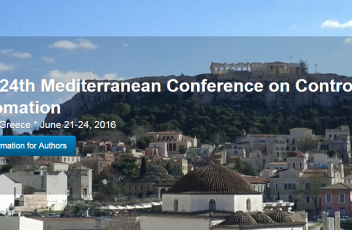Doctoral Thesis titled “ Contemplative Values of Urban Parks and Gardens: Applying Neuroscience to Landscape Architecture” has been defended!
On 22 July 2016 the first PhD thesis joining together methods of neuroscience and landscape architecture has been defended at the Faculty of Science, University of Porto, Portugal. Agnieszka Anna Olszewska, author and founder of Neuro-Landscape managed to get to the end of the doctoral track, defend her thesis with an excellent result (“excellente com distinção”), and most importantly, cleared the path for further research in the area.
Among others important ways that the urban landscape can serve us there is its powerful impact on our mental health and well-being. Research attempts like that will help bringing researchers, designers and policy makers closer to accepting this fact as a common sense.


PhD thesis summary:
“This thesis presents research about the contemplative values of the landscape settings that can be found and designed in contemporary cities. The research focuses on how these contemplative values can influence human brain activity, which may contribute to the improvement of mental health and well-being, as well as the overall quality of life, in urbanized areas. The investigation consists of two complimentary studies, each of which applies different methods and approaches. The first study sought after identification of the contemplative features of the landscape, meaning all the factors that make the particular landscape a contemplative one.
The tool used to establish these factors was an expert classification of the landscapes using the Contemplative Landscape Questionnaire (CLQ). This study resulted in a set of landscape photos ranked according to their contemplativeness. In addition, the CLQ was tested for its reliability and validity measures, and showed satisfactory results.
The second study was a neuroscientific laboratory experiment, which attempted to prove that the brain activity pattern while observing the landscapes classified as the most contemplative is similar to the patterns associated with the state of mindfulness (associated with left frontal alpha and theta activity). The study had the form of an electroencephalography (EEG) laboratory experiment, in which the six most contemplative and the six non-contemplative landscape settings (presented in the form of 3D images) were displayed in two blocks of stimuli to 32 subjects, while simultaneous EEG signal recording was performed.
The experiment showed that the brainwave pattern that occurred while viewing the most contemplative landscapes cannot be associated with the patterns of mindfulness currently established, which proves the hypothesis false. Nevertheless, supplementary analyses showed that the most contemplative landscape images induced significantly stronger activation of the brain in right temporal regions, compared to the non-contemplative ones. This suggests alterations in the attention mechanisms that the contemplative landscapes may have induced. Moreover, we observed higher activation on the left frontal lobe while observing both types of landscapes (which is associated with positive emotional states), with the contemplative landscapes showing an increased trend to induce this phenomenon.
The presented research confirms that contemplative landscape designs can influence the brain activity patterns of the people viewing them. Applying methods of neuroscience to landscape architecture is an innovative approach, and could help create principles of evidence-based design that would contribute to the continuous endeavor of improving the quality of life in urbanized areas.”




